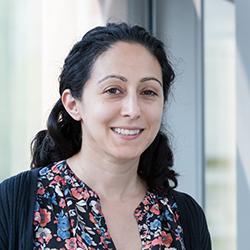We investigate the mechanisms that direct ‘cell fate’ in human embryos and stem cells. This means studying the different factors that tell embryonic cells which type of cell to become.
After a human egg is fertilised, the cells multiply as the embryo grows. After five days there are around 100 cells, under 10 of which are embryonic epiblast cells that go on to form the fetus – these are pluripotent cells, as they are capable of becoming any type of cell in the body. The remaining 90 or so cells will go on to form either the placenta or the yolk sac.
We seek to understand how these early human pluripotent embryonic cells are established, how they remain pluripotent and how this process is turned off when the cells specialise. We are mapping the complex hierarchy of different genes that control cell activity in early development, determine the influence of factors outside of the cells and understand the similarities and differences between human and mouse development.
The processes that underpin early development and stem cell pluripotency are fundamental to human biology. If we knew how these processes worked, this knowledge could inform the understanding and treatment of infertility and developmental disorders. We could also use this knowledge to improve our use of stem cells in both science and medicine.


